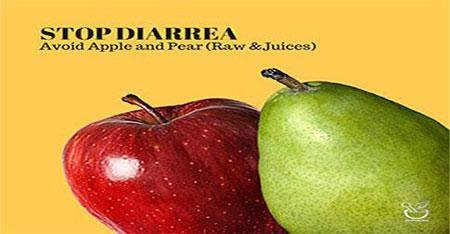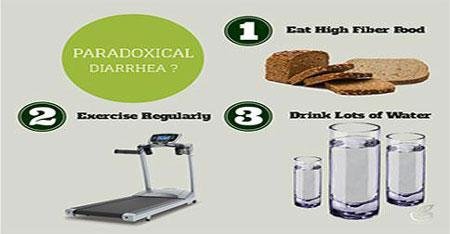In simple terms, diarrhea is an abnormal increase in the frequency and fluidity of stools. Depending on the time frame, diarrhea can be called acute (Short Term) or chronic (Long terms).
Almost everyone gets acute diarrhea during the course of life. It is normally caused by infections, and it can also manifest as a side effect of certain medicines. It is short lived. Just lasts for a few days. On the other hand, Chronic diarrhea lasts for many weeks and is indicative of a serious underlying problem that requires treatment.
It is easy to decide natural home remedies for diarrhea, if the cause of underlying type of diarrhea is understood first.
After the common cold, diarrhea is the number 2 most common ailment in the world. Diarrhea or frequent passing of loose and watery stool is a symptom of an underlying disease but not a disease itself. Anyone at any age can get diarrhea.
More than 5 billion cases of diarrhea of different types occur every year throughout the world. Though, it can cause death due to dehydration in malnourished people in some developing nations, it is usually not as dangerous for the affluent and well-nourished society.
Diarrhea has a major impact on global health and is highly correlated with hygiene and nutritional status. It is an important area of focus because it can be significantly reduced by appropriate precautions, interventions and treatments.
In cases of babies and elderly people it can be life threatening so special care should be taken.
It is a major cause of death in the developing world where the effect is greatest among the young. According to World Health Organization (WHO) estimates about 3.5 million deaths a year are caused by diarrhea of all types. 80 percent of these deaths are children under the age of five (majority six months and three years of age).
Poor nutritional status according to various studies, can double the risk of contracting diarrhea when exposed to an infectious agent. In addition the duration and acuteness can increase to 3 times than normal in case of a malnourished child.
In many developing countries deaths from diarrhea has been prevented by World Health Organization (WHO) recommended homemade remedies for diarrhea.
5 Different Types of Diarrhea
- Five Types:
- Osmotic
- Secretory
- Exudative
- Paradoxical
- Pseudo
Depending on the underlying type of diarrhea, following different natural remedies can help get rid of diarrhea?

1. Osmotic Diarrhea
This is caused by the inability of the digestive system to absorb certain components of food such as sugars (lactose and fructose), sugar alcohols (sorbitol) and some minerals (magnesium, sulfate and phosphate). Water is drawn by these un-absorbed minerals into the intestines, causing passing of watery stool. Normally osmotic diarrhea disappears after the foods containing these elements are removed from the diet.
At home remedies for osmotic diarrhea involve stopping consumption of diarrhea causing food items.
- Stop eating all sugary products. Don’t consider yourself safe by consuming sugarless sweeteners. In fact sugarless candies and sugarless chewing gum and all other substances containing hexitols, sorbitol and mannitol are your worst enemies if you have Osmotic Diarrhea.
- Give a break to high fructose (sugar) containing fruits and juices such as apple and pear
- Completely give up consuming all Magnesium containing antacids and laxatives.
- Give up all milk products if you are lactose intolerant
Since Osmotic Diarrhea may also result from various disorders, such as Celiac Disease and Whipple's Disease, chronic pancreatitis and obstructed bile duct etc., it is important that you get your physicians help in dealing with this diarrhea.
2. Secretory Diarrhea

This is caused by secretion of water and salts by intestine into the stools. This happens during various kinds of infections. The infections release toxins that secrete water and salt by interfering with the intestines. Carcinoid tumors and medical conditions like celiac disease can also stimulate secretions.
Secretory diarrhea is a leading cause of infant mortality in the developing world. Though bacterial infection is most of the time the main reason, improperly absorbed bile salts and fatty acids also stimulate colonic secretion. In some rare cases certain tumors and neurological complications can also cause secretory diarrhea.
This kind of diarrhea is acute and requires immediate medical attention because the bacteria causing infection must be tamed. However, since a lot of water is lost it is important that a lot of oral rehydration is maintained.
Following natural remedies for rehydration do help to retain strength lost during diarrhea and sometimes can become the difference between life and death.
- Take a glass of water, add ½ teaspoon of table salt. Stir it well and drink it. Keep doing this every half an hour.
- Consume 2-3 glasses of above preparation at a time if comfortable.
- Add a few drops of lemon for taste.
Since fluid and electrolyte replacement are the most important forms of therapy in such cases you can take over the counter (OTC) electrolytes.
3. Exudative Diarrhea
This occurs when inflammation of the lining of the colon causes the release of blood, mucus and/or other fluids. This type of diarrhea can be caused by a number of conditions such as tuberculosis, some types of cancers and irrigational bowel disease (IBD).
- Usually no home remedies can be effective in this type of diarrhea.
- Medical attention to treat the underlying cause becomes the top priority.
- Re-hydration is necessary as this is also an acute form of so drink lots of water with salt added.
4. Paradoxical Diarrhea
This is a false indication of diarrhea. The symptoms are diarrhea-like but actually the complication is constipation called a fecal impaction. In case of paradoxical diarrhea, liquid stool flows around hard, impacted stool which is still inside the rectum. Paradoxical diarrhea is very common among children, senior citizens or adults with limited mobility or mental capacity.
Simple home remedies such as dietary changes and exercise do greatly help in paradoxical diarrhea.
- Eat foods rich in fiber such as wholemeal breads and fruits.
- Exercise regularly
- Remain hydrated. Drink 8-10 glasses of water every day.

5. Pseudo Diarrhea
This is an induced diarrhea such as caused by overuse of laxatives. Other causes include eating disorder bulimia nervosa which is caused by people trying to reduce body weight and Munchausen syndrome in which people fake illness to seek attention.
Natural remedies can’t really help much (except stop consuming laxatives) in this type of diarrhea as much as regular trip to doctor and psychiatrist can.
It is often noted that different types of diarrhea may occur simultaneously at the same time. So if the causes are understood well then it becomes easy to prevent and treat.
Better Understanding of the Causes of Diarrhea can Help to Prevent and Treat Diarrhea.
Since diarrhea is a condition of an increase in frequency of passing stools together with a change in their consistency, it is easy to identify it. Let us first understand what really happens? Normally, during most of the digestive process, the food remains in liquid form. When food passes through the colon, most of the fluids are absorbed creating a semisolid stool. When the food and fluids pass too quickly or in too large amount or both through the colon, diarrhea occurs. Since the fluids aren't sufficiently absorbed, the result is a watery bowel movement. In addition, sometimes the lining of the colon may be inflamed making it less able to absorb fluids.
It isn't always caused due to food – anxiety, turmoil and emotional stress can also be responsible for Diarrhea. Due to some functional bowel disorders the muscles that move waste along the intestine can spasm like in irritable bowel syndrome. Occasionally in some people certain medicine such as antibiotics, blood pressure medications, and antacids containing magnesium can induce the condition as a side effect.
Bacteria and parasites - When contaminated food or water is consumed, the bacteria and parasites present as contaminants can be responsible for the condition. Common type of bacteria that causes diarrhea are Campylobacter, Shigella, Salmonella, and Escherichia coli and Parasites that are responsible include Giardia lamblia and cryptosporidium.
Viral infections - Rotavirus is the most common type of virus that is responsible for it. Norwalk virus, herpes simplex virus, cytomegalovirus, and viral hepatitis are some of the other common viruses that cause the condition.Diarrhea caused by viruses spreads easily.
Food intolerance - Certain types of sugars such as lactose found in milk, fructose found in many fruits and artificial sweeteners (Sorbitol and mannitol) found in chewing gum and other sugar-free products, can cause diarrhea in children and some adults.
Other causes of diarrhea include surgery and some Intestinal diseases such as inflammatory bowel disease or celiac disease.
So once the cause is understood remedial action at home or a visit to the doctor can cure diarrhea.
Learn more about diarrhea and home remedies to treat it in the other related articles:

